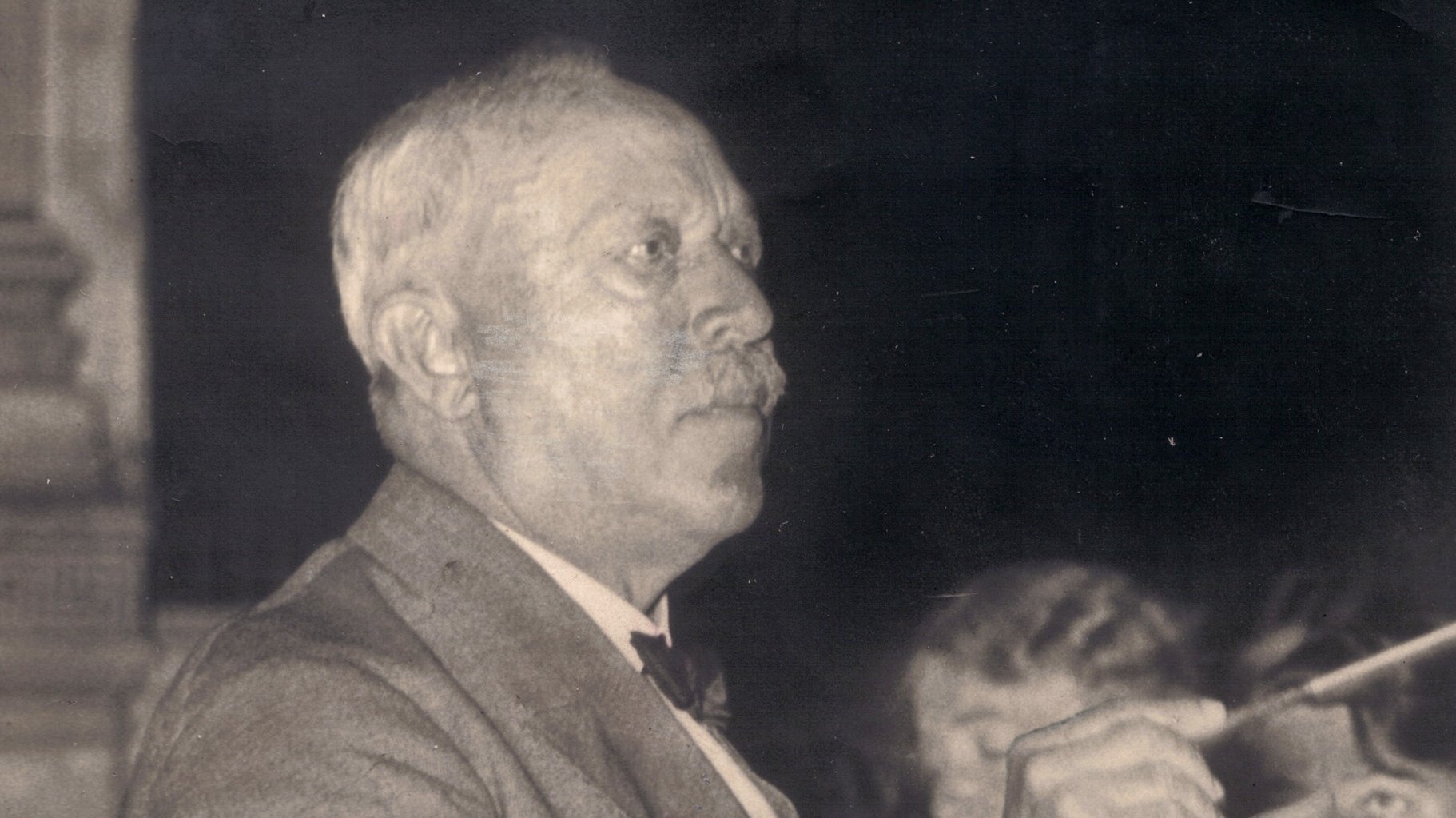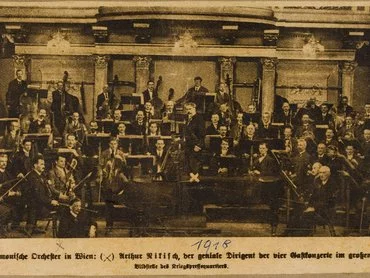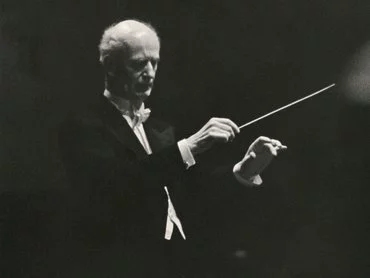- History
- Orchestra History

The conductor, pianist and composer Georg Schumann (1866-1952) is one of the artists whose collaboration with the Berliner Philharmonisches Orchester was amongst the longest and most regular. In 1887, just five years after the Philharmoniker were founded, Schumann appeared in a concert with the orchestra as the soloist in the piano concerto of his namesake, Robert Schumann. From 1900, the Philharmoniker were Schumann’s preferred orchestra for world and German premieres of his works. The Philharmoniker were a regular partner of the Sing-Akademie zu Berlin whose director Schumann was from 1900 to 1952, and together, they gave up to a dozen concerts a year.
Georg Schumann, born in Königstein in Saxony on 25 October 1866, came from a highly musical family. He received his training from his father in his home town’s wind band and at the conservatory in Leipzig where he graduated in 1887. Following positions as a conductor in Gdansk, and in Bremen under Felix Weingartner, he took up the post of director of the Sing-Akademie zu Berlin in 1900. In 1907, he became a member of the Königliche Akademie der Künste zu Berlin and later took over the composition class from Max Bruch plus the direction of the music division, for whose concerts he regularly engaged the Philharmoniker. A distinguished pianist, he appeared throughout Europe both as a soloist and together with his trio partners Carl Halir and Hugo Dechert.
A successful partnership
When Schumann took over the directorship of the venerable Sing-Akademie zu Berlin at the turn of the century, there had already been a long-standing association with the Berliner Philharmonisches Orchester, in particular under Schumann's predecessor, Martin Blumner, who had engaged the orchestra for performances since it was founded in 1882, thus giving the orchestra a welcome help from the time of its formation.
For his first concert with the Sing-Akademie, Schumann immediately called on the Philharmoniker for a performance of Mozart’s Requiem, plus a Bach cantata. In doing so, he upheld and, together with the Philharmoniker, considerably built on the Sing-Akademie's long Bach tradition.
In 1901, they took part together in the first German Bach Festival in Berlin; In 1906, Schumann and the orchestra gave benefit concerts for the acquisition of the Bach house in Eisenach which was transformed into a Bach Museum. None other than the great violinist and founder of the Berlin Musikhochschule Joseph Joachim gave his support.
With the Philharmoniker, Schumann was able to start to update the repertoire of the Sing-Akademie, which had barely extended to include Brahms. He performed César Franck’s Les Beatitudes as early as 1901, and the Verdi Requiem with his own Totenklage in 1903. This was followed by works by other composers ranging from Edward Elgar to Franz Schmidt.
An esteemed composer
The Philharmoniker's chief conductors also started to programme Schumann’s own compositions at an early stage: in 1906, Arthur Nikisch conducted the Ouvertüre zu einem Drama, in 1911 the Celebration Overture and in 1918, the Variations on a Theme by Bach.
In 1929, his successor, Wilhelm Furtwängler, conducted the Orchestral Variations on Vetter Michel which were an enormous success. The Philharmoniker accompanied Georg Schumann and the Sing-Akademie on their first tour abroad to Italy in 1913. The high point of this long-term partnership was a concert the orchestra gave for Schumann’s 70th birthday on 25 October 1936.
During the Third Reich, the orchestra was under the control of the Ministry of Propaganda, but decades of contractual obligations between the Philharmoniker and the Sing-Akademie made it possible for Schumann to continue to work with the orchestra; shortly before the war ended on April 14, 1945, they performed Brahms’ German Requiem in the Beethovensaal, next to the old Philharmonie.
After the war, the orchestra maintained its ties with the composer. For his 80th birthday in 1946, Sergiu Celibidache conducted Georg Schumann’s Handel Variations. The last concerts under Schumann’s direction took place in 1946 and 1947 – which brought the 60-year partnership to an end. When Schumann died in Berlin on 23 May 1952, members of the Berliner Philharmoniker played at his funeral.

